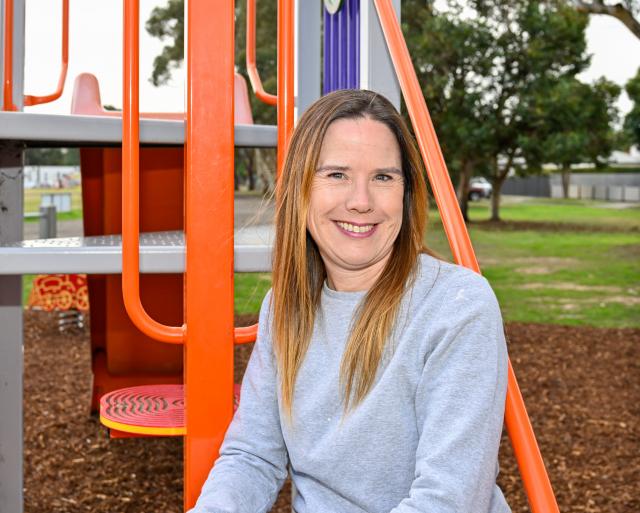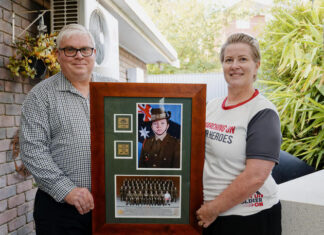A Geelong stroke survivor calls on everyone to watch out for stroke symptoms this National Stroke Week.
Jenny Wentworth was 41 when she had a stroke at a party in 2016. She said she first noticed something was wrong when she dropped a piece of cardboard and couldn’t pick it up.
“My brain wasn’t working and then all of a sudden, I felt this massive bang in my head,” she said.
“I could feel everything going limp down my right side, and I realised then that I was paralysed and had a stroke.”
Ms Wentworth said she felt “petrified” during the stroke as she couldn’t talk or feel the right side of her body and that paramedics initially diagnosed her due to her age.
“The paramedics didn’t realise I had a stroke even though I did,” she said.
“Originally, when I got to the emergency room, the doctors thought I’d had a major migraine, but I knew I didn’t. So, doctors didn’t treat me for hours.
“I was thinking, ‘I’ve got to tell someone that I’ve had a stroke’, but I couldn’t speak or write to tell them anything.
“I was very lucky as I only had a moderate stroke, but I wasn’t treated straight away, so it took me a fair while to get better.
“I do still suffer as a result. I’ll never be able to work full time again and I suffer fatigue. If I’m over tired, I slur my words and get very irritated.”
Stroke Foundation chief executive Lisa Murphey said it was important for people to be aware of the F.A.S.T (Face, Arms, Speech and Time) signs of stroke.
“There is a misconception that stroke only happens to older people, but stroke can happen at any age. It can happen to babies, children, young adults, and older Australians,” she said.
“Stroke is always a medical emergency. Dial 000, get to a hospital as soon as possible and get treatment as soon as possible.
“The sooner you can get to hospital and get treatment if you have a stroke, the better your outcome will be.”









